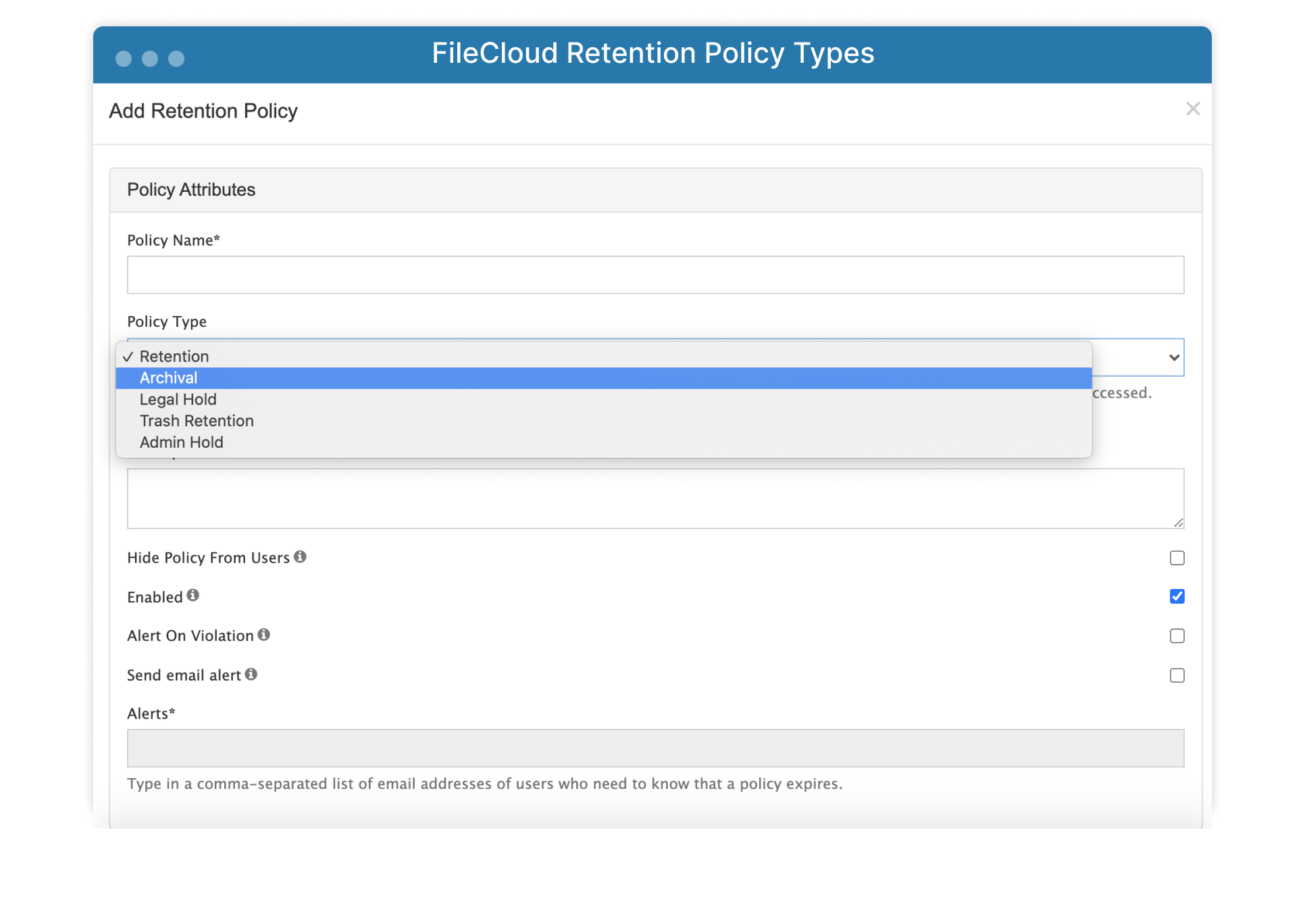Records retention policies are an important part of many different organizations. As regulations increase, many different industries have needed to create records retention schedules, with the healthcare industry leading the way.
It might sound complicated, but in essence, a records retention schedule is a document that identifies and describes an organization’s records and the lengths of time that each type of record must be retained.
Why Does Record Retention Matter to Healthcare?
For the healthcare industry, record retention is vital. Healthcare employees must remain HIPPA compliant, while still retaining records for a certain length of time. These records are required for processes like malpractice suits, regulatory agencies, professional licensing boards, peer reviews, and state and governmental regulations.
Failing to retain records for the required length of time can lead to penalties from regulatory bodies, not to mention lost malpractice suits and a host of other problems.
Not every healthcare organization is the same though. In the US, healthcare organizations must comply with HIPPA, along with other state regulations, whereas healthcare organizations in the UK meet NIH requirements.
HIPPA requires that patient records are kept for at least six years; other state or regulatory bodies might require information be kept for ten years.
State medical boards often publish recommendations for hospitals and healthcare professionals to follow, but still, these can seem overwhelming. After all, can you imagine the time it would take if one person had to individually go through millions of files and make a decision on keeping or deleting them?
That’s where record retention scheduling comes into play. Record retention scheduling can be created to automatically keep/delete/not allow changes to records until a certain amount of time has elapsed. Even these systems, though, can be confusing and difficult to manage.
Building a data retention program and then enforcing rules involve certain steps:
Defining the scope of the policy
Policies should describe the reason for the policy implementation (listing the requirements: for example, whether it is a HIPPA/state regulation). The scope should also include those people affected by the policy (employees and third parties).
Classify the data
Next, you’ll need to classify the data and records that need to be saved/archived or erased.
Specify how the data will be retained and protected
Then you’ll outline the policies and procedures for protecting and keeping the data, including specific retention schedules for each policy, any other policies applied during the record’s lifecycle, and what happens at the end of the policy.
Monitor and report
Lastly, you’ll need to monitor and report any issues (including who performed file actions, where files were stored, why they were put under a certain policy, etc.) related to your records retention processes that will satisfy auditors, legal teams, and regulators.
This type of data management can be overwhelming, which is why so many healthcare organizations don’t keep up with it as they should. However, this laxness can lead to severe financial and operational penalties.
So why not make it easier with FileCloud?
FileCloud’s Record Retention Scheduling System
FileCloud supports HIPPA compliance by providing a hyper-secure place for healthcare organizations to store and share their data. But it’s FileCloud’s Record Retention Scheduling System that makes it easy for healthcare administrators to control and create policies to manage their records and data. FileCloud offers many different hierarchical policies, including retention, archival, legal hold, trash retention, and admin hold
- Admin Hold: This hold outranks all other policies and prevents changes/deletion of digital content for an indefinite period of time.
- Legal Hold: Freezes digital content to aid discovery or legal challenges. During a legal hold, file modifications are not allowed.
- Retention: Identifies digital content to be kept around for an unlimited amount of time before being deleted, moved to cold archival, or released.
- Archival: Moves and stores old organizational content for the long term. No deletion is allowed until a specified time period is reached. After this time, content is moved to a specific folder.
- Trash Retention: Can be configured for automatic and permanent deletion of all files in the Trash bins or to expire with no actions

Administrators can create retention policies to automate some of the processing for files, records, and documents. This automation helps ensure that documents entering and leaving the system are following the retention timelines healthcare organizations are required to follow.
Retention policies are created by administrators and then assigned to certain files and folders. These policies help you define and enforce restrictions required for each file and folder (such as folder deletion or file manipulation).

Administrators can take actions like creating a retention policy that won’t allow users to delete any files/folders within the policy.
FileCloud provides a secure system in which to share and store your data, as well provides a host of ways to manage this data, including:
Smart DLP:
FileCloud provides data leak protection with a simple and rule-driven Smart DLP system that prevents accidental leaks from users which can cause compliance issues and penalties.

Smart Classification:
FileCloud’s smart classification engine automatically sorts content into logical categories. This lets users create customized search patterns and metadata sets for document and record classification.
DRM:
FileCloud protects records and information against theft, piracy, and leaks with AES-certified 256-bit encryption at all times. Administrators can revoke access to data at any time or wipe data from user devices to further protect data.
Metadata:
FileCloud helps summarize what a record or file contains using metadata tags. This level of control across metadata enables users to define files and records for easier record management via default, built-in, and custom metadata sets.
It is vital for those in healthcare to ensure that they have a robust records retention schedule set in place. This helps ensure they remain compliant with regulations and requirements and avoid costly mistakes that could affect the outcome of lawsuits or internal reviews.
Using FileCloud’s secure system helps the healthcare industry stay organized, compliant, and efficient. Get a free trial today to find out for yourself.